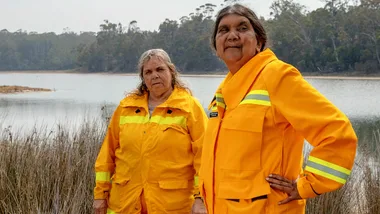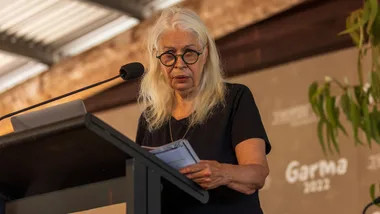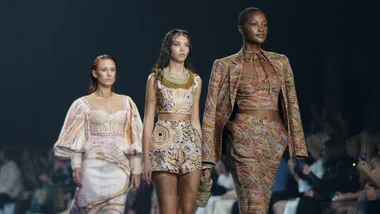On July 25th, 2024, Prime Minister Anthony Albanese announced there will be a ministerial reshuffle as senior ministers Linda Burney and Brendan O’Connor get set to retire before the next election.
The prime minister paid tribute to both ministers and shared some kind words.
“I am proud to call them my friends…[and] to have witnessed firsthand their passion for this nation, their determination to leave the country better for their contribution as members of parliament and as ministers,” he said.
Burney entered federal parliament in 2016 in the seat of Barton, and before that she served in the New South Wales state parliament. Sharing the stage with the Prime Minister, she spoke of her dedication to improving the lives of First Nations People, and her 21 year-long career in politics.
“It’s time for me to pass the baton to the next generation,” Burney said.
“I know in my heart I gave it all that I could, to close the gap and to advance reconciliation.”
As we acknowledge her amazing career, we take a look back at our exclusive interview with the MP where she shared her personal story.
________________________________________________________________________________
Content Warning: This article touches on the topic of domestic violence which may be triggering for some readers.
Linda Burney does not speak about domestic violence lightly or easily.
It was more than 20 years ago, but the memory of her own flight from a violent relationship can still ruffle her customary easy-going grace.
Now 65, Linda Burney was then a young mother of two with a successful career in administration and education, and a de facto partner who was highly regarded in the wider community. What Linda remembers most clearly about that relationship is the moment she decided to leave.
“There had been a pretty violent incident,” she recalls, and there had been others before. She had suffered a broken nose and a broken eye socket.
“I stayed a bit after that. Then I saw the effects on my kids and I thought, ‘This is it’. It was a watershed moment for me.
“I was in a different position from a lot of women. I was economically independent and in a good job. I waited until he was out of the house, then I rang a friend and said, ‘Come and get me’. I packed one small bag between the three of us, got in the car and left.”
A week later, the enormity of the decision sunk in and Linda fainted while she was doing the ironing. The friend with whom she was staying helped her into bed and she remembers nothing of the next three days.
“Afterwards,” she says, “the kids and I started afresh. We moved to La Perouse [in Sydney’s south-east] with an enormous amount of community support. My will says half my ashes should be scattered at La Perouse – the other half will go to Whitton, the town in the Riverina where I grew up.”
Linda Burney is a trailblazer, both as a woman and as a politician. She understands the issues that affect her constituents because she has lived through many of them.
Her career has spanned some of the most senior roles in NSW state politics, including Deputy Leader of the Opposition and Minister for Community Services and, in July 2016, she won the federal seat of Barton in southern Sydney. In “one of the great ironies of demography”, she says, the voters in a seat named after the architect of the White Australia Policy elected the first Indigenous woman to the House of Representatives.
Linda made her maiden speech to a crowded house and an effusive standing ovation. She was dressed in designer navy and amethyst, and a traditional cloak, which, she explains, “tells my story. It charts my life. On it is my personal totem, the white cockatoo – a messenger bird and very noisy!”
In that speech, Linda promised that she wouldn’t lose sight of the real-life consequences that spring from government decisions.
“There are a lot of career politicians who don’t bring very much lived experience with them,” says her long-time friend, the academic Lynette Riley. “They don’t understand the issues facing real people – am I going to pay the electricity bill or am I going to buy bread and milk? Linda takes all that experience into her work as a politician. You can hear it in her voice. That’s what people are attracted to, that’s why they trust her.”
Linda’s life is rich in experience, deeply threaded into the fabric of Australia. She is a Wiradjuri woman, a mother, teacher, the daughter of an Aboriginal folk singer and a teenage tearaway of Scottish descent.
She was raised by her great-uncle, William, and his sister, Letitia, who were already in their 60s when they took her in, the baby abandoned at birth by their niece. It was an act of generosity which cost them dearly in terms of social standing.
“I went back to Whitton Public School for its 150th anniversary,” Linda says. “By then, I was a [NSW state] Cabinet Minister and one of the most successful people to have come out of that school. Yet a man there told me that the day I was born was the darkest day in Whitton’s history. My aunt and uncle were non-Aboriginal and it was a very small town. I don’t know why they decided to take me in, but it probably kept me out of institutional care, and they raised me with old, solid values that have served me every day of my life.”
Linda’s great-uncle was a drover and the family lived in a tin-roofed weatherboard cottage beside the stock route. Her earliest memory is of her three-year-old self – a tiny, self-possessed tomboy, already with a snappy sense of style – at play in a rambling yard. “I was wearing a singlet and Cottontails, and a necklace of red plastic beads with a gold chain, which I thought was beautiful.”
Rose bushes grew in the yard, and citrus trees. There was a shed, where saddles were kept, that smelled of dust and chook feed and leather. In the paddock out back, there was a chicken coop and “often a poddy calf or lamb that came from the herds my uncle drove. It was a fantastic place to grow up. You left home at daylight, you got back at dusk and you spent the day riding horses, swimming in irrigation channels, building forts, climbing trees, making campfires. I had a remarkably free childhood and I was absolutely loved.”
Linda has few photographs of that time and none of her great-aunt and uncle.
At school, Linda says, there were “all the low expectations of Koori kids, but I was bright – I was in the top three of every class.”
By the time she reached high school, however, Linda was taking on an increasing burden at home. As her great-aunt and uncle became frail, “the roles reversed and I was their carer. We didn’t have running water inside, we had one electricity outlet, there was no sewerage. Not long before my aunt went into hospital for the last time, I was trying to bathe her in our old galvanised iron bathtub and I remember crying because I was so small and it was such a difficult task.
“It was a childhood full of love, but there was enormous pain at times as well. I became self-reliant and resilient, and I was given the capacity to be a fantastic survivor.”
After her great-aunt and uncle died, within 18 months of each other, Linda saw out Year 10 at her local high school, then moved to Penrith, on the western edge of Sydney, to live with her mother for the first time. They had never been close and the transition was traumatic.
“When I started at Penrith High, I didn’t have the uniform, I was black and I had a really short pixie haircut. I also smoked. The cool guys smoked across the road and I was one of the few girls who went over and asked them for a light, and just walked off without saying thank you and lit up in full view of the school,” she says.
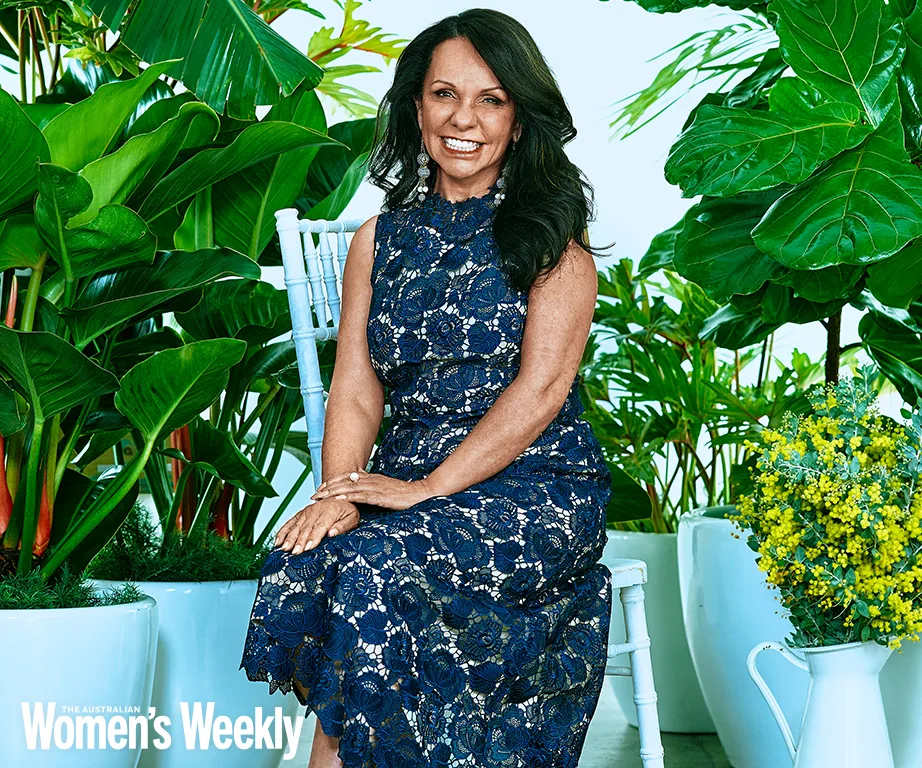
“I don’t know why they decided to take me in… but it kept me out of institutional care.”
“I was told, years later, that everyone was terrified of me. They saw me as this tough, feisty girl who was different. This, to me, was a revelation. I was desperately sad and homesick and scared, and I needed friends.” In time, Linda made good friends. She also excelled academically, was appointed prefect and dated the coolest guy in school, whom she met on the notorious footpath of smokers. His mother, a school principal, encouraged Linda to become a teacher.
After university, Linda spent two years teaching in “the great social experiment” of western Sydney suburb Mount Druitt, then was plucked from the classroom to join the policy unit of the fledgling NSW Aboriginal Education Consultative Group (AECG), where she began work on Australia’s first Aboriginal education policy. By age 27, she was the organisation’s president.
“I not only learnt about myself and my Aboriginality there,” she says, “it was the most formative period of my political life. I remember, very distinctly, sitting with a senior Cabinet Minister and thinking, ‘I reckon I could do your job. I’m as smart as you’.”
During Linda’s time there, the AECG pioneered Aboriginal education and planted seeds that would eventually transform the way Australian history is taught.
“If you talk to teenagers today,” she muses, “the idea Aboriginal people are on the fringes and not fundamental to the story of Australia is just alien to them. That’s because we’ve changed school curricula – and there’s no more powerful institution for bringing about change than education. That change has taken place over two generations and it’s what my life has been about. I’ve been part of that movement.”
At 28, Linda met her father for the first time. Her mother had refused to speak of him. Her grandmother, on her deathbed, had said simply, “You don’t need to know that.”
Then, one night, when Linda was eight months pregnant with her first child, a cousin arrived on her doorstep and said, “I have someone for you to meet.” They drove across town and waited until “this incredibly handsome man walked across the road and that was my dad. He got into the car and I showed him a photograph of my mother taken at about the time he would have known her. He looked at it for about 30 seconds and then he put his arms around me and said, ‘I hope I don’t disappoint you’.”
He didn’t. Laurence “Nonnie” Ingram was a good man, who had worked as a folk singer, fruit picker, council worker and more – and had lived less than an hour’s drive from Whitton.
“I also found I had 10 new brothers and sisters,” Linda says, smiling. “I’ve met them all and there’s an enormous amount of love. Within the Aboriginal community – because we’ve had such a story of separation and removal – if a child comes back, that place is found. It’s a cultural thing. That place is waiting for you.”
Linda found a place in other families, too. “A lot of my extended family has adopted Linda,” says Lynette Riley, smiling. “My aunties and cousins and sisters consider her part of our family.”
By the time she was in her early 30s, Linda had an immensely successful career and two children, Willurei and Binni.
“This notion of a work-life balance is rubbish,” she says, laughing. “That was a fallacy that was sold to us and some of us bought it. I did my best. I spent a lot of that time as a single parent, but I relied on a wonderful network of women friends and relatives, and one of the things about Aboriginal culture is that there’s a view of child-rearing as a group responsibility. I think that served my children well.”
If there was one quality with which she hoped to send Willurei and Binni into the world, it was “resilience, absolutely”.
As her kids grew older, Linda’s political career took flight. She was a Director of the NSW Anti-Discrimination Board and a representative of First Peoples to the UN. She was elected to the NSW Parliament in 2003 and was promoted swiftly, serving as NSW Deputy Leader of the Opposition, Shadow Minister for Education, Shadow Minister for Aboriginal Affairs, and historian and political commentator Ross Fitzgerald has described her as “perhaps the most successful Minister for Community Services in the history of NSW”.
Linda considers her most significant political achievement to be the Keep Them Safe reforms, which she introduced in the wake of the 2008 Wood Special Commission of Inquiry into Child Protection. Verity Firth, who worked alongside her in the NSW Cabinet, says her second greatest achievement might well have been the good sense and the moral compass that Linda brought to the Parliament.
“She doesn’t play the game of politics,” Verity explains. “She doesn’t do backroom deals and strategies with key power players. She says what she thinks and does what she believes is right, and is able to rise a bit above that sort of behaviour. She’s a team player. She’s not someone who’s just in it for herself. There is a maturity to her politics… She’s also able to be warm and loving and human in a profession that does not offer many opportunities for that, which is what really stood out about Linda.”
Linda Burney is, however, no pushover.
“There’s a tough side to me,” she warns. “I enjoy the adversarial nature of politics. I’ve spent so many years being both the only woman in the room and the only Aboriginal person that I’ve had to develop a strong belief in myself. I have plenty of faults – I’m a little bossy and I have a tendency to not always allow people to finish a sentence.”
That said, Linda believes there is no better foundation for a career in politics than empathy. A voracious reader, she often quotes To Kill A Mockingbird, which she describes as the touchstone of her political career. “You never really understand a person until you consider things from his point of view… until you climb into his skin and walk around in it,” she says.
Empathy, however, can be costly. In 2006, Linda’s partner of nine years, Rick Farley, died following a brain aneurism and accident. A one-time journalist and government advisor, an architect of the Landcare program and the Mabo reforms, Rick was the man whom Linda describes as the love of her life. Within months of Rick’s death, Willurei was diagnosed with a rare neurological illness and she came close to death.
Then, in October 2017, Binni passed away. “He was a caring and loving man,” she said at the time. “He has struggled. He tried so hard to conquer his demons and I and my family have tried so hard to support him in every way we could…”
“Our lives have not been without very difficult challenges,” Linda admits. “It hasn’t been easy, but we’ve hung in.”
“I’ll tell you a story,” she continues, looking for words to describe the inner resources that have seen her through these challenges.
“I remember, about a month after Rick died, I was standing at my kitchen sink washing up, and the kitchen window looked out to my lovely garden, and it struck me, you have a decision to make right now. You can either wallow in the depths of depression, which I had developed, feeling sorry for yourself and angry with the world, and all those emotions that come with grief, or you can take this terrible experience and use it to grow.”

“So that’s what I did. It was a clear moment of decision and I grew into someone who was more compassionate, more empathetic. I became someone who truly understands how precious every minute is, that things can change in an instant. You can get up on the most mundane morning, thinking your life is going to be this for the day, and at any second it can change. I learnt that in the most awful circumstances and that understanding has stayed with me. It’s sitting on my shoulder now.”
It’s not surprising Linda’s epiphany came while her mind wandered to her garden, her refuge.
“I’m a very enthusiastic gardener,” she says, smiling. “My garden is a little oasis of ferns and groundcover, hibiscus, box jasmine, trumpet vine and my favourite plant in the world, the creamy white frangipani – I have a couple of those – and a very old cement swimming pool,” where she cools off from the political maelstrom.
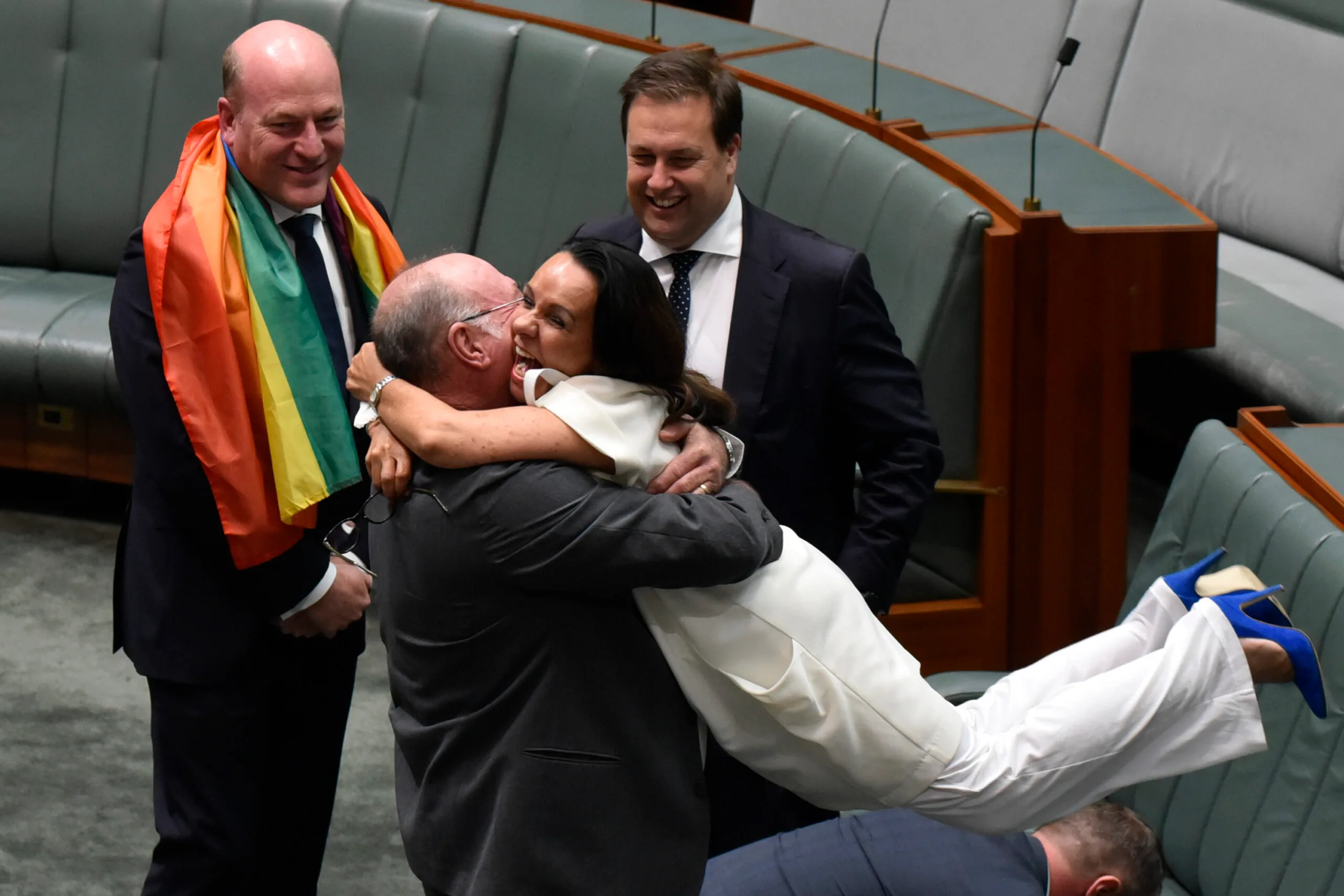
Warren Entsch and Linda Burney MP celebrate the legalisation of same-sex marriage at Parliament House on 7 December 2017.
In July 2016, Linda won her seat in the House of Representatives and was immediately promoted to Shadow Minister for Human Services.
She promised to bring “that Wiradjuri fighting spirit” into the Parliament in the service of “social justice and equality for all people”.
“People don’t ask too much,” she told her fellow MPs. “They want to be heard and they want to be treated with respect and with empathy.”
If you or someone you know has been affected by any of the issues raised in this article, help is always available. Call 1800 RESPECT on 1800 737 732 or Lifeline on 13 11 14.
